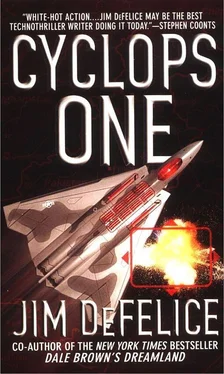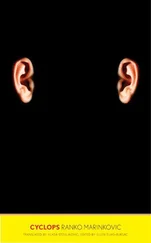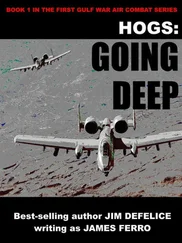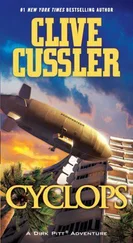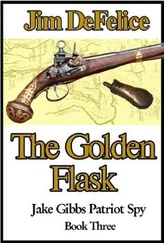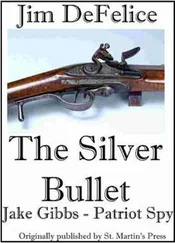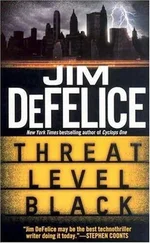“I got ’em,” he told his leader. The computer had already brought up the weapons bar indicating the AIM-9M all-aspect Sidewinders were ready to fire. The audible indicator growled, telling him it was ready to fire; Timmy push-buttoned the first Mirage to death, the missile slapping out of the F/A-22V’s side. The second Mirage slid to the right as the first one blew apart; Timmy couldn’t find it and decided to leave it be; he was low enough on fuel to dial up the bingo matrix on the variable-use screen. As he started to look down toward his dash, his eyes caught the glow from several fires on the ground.
“Looks like World War III down there,” said Timmy, laughing a little.
“Hopefully not. Cyclops is hit.”
Howe’s voice sobered him. He found his leader’s wing and scanned for bogeys.
Whatever had nailed the 767’s left engine had torn through the housing and wrecked the blades but left the wing itself undamaged. There hadn’t been a fire, either; in many ways they’d been incredibly lucky.
Atta and his copilot worked to compensate for the loss of the engine, trimming Cyclops Two and taking it lower. They ran quickly through the rest of their systems, making sure they hadn’t sustained any other damage. While undoubtedly there were more pockmarks in the skin of the aircraft, all their systems were functioning properly.
The plane retained considerable maneuverability with just one engine, and Atta and his copilot routinely practiced handling exactly this sort of situation, both in a simulator and in the aircraft. What they hadn’t done was use the laser with only one engine; standard procedure called for a stricken plane to return to base ASAP.
But standard procedure didn’t take into account a fresh volley of ballistic missiles, this time from the Pakistanis.
“Two missiles,” said Sergeant Peters as Atta finished his controlled descent to 25,000 feet.
“Yes,” said Atta, glancing at the target priority screen. The missiles were the only items on the board.
“Captain, we’re on one engine,” said the copilot.
The few words describing the obvious fact represented a novel’s worth of meaning: Not only was Atta being reminded that they were in serious danger, but his judgment was being questioned. He might have barked at his subordinate or ignored him, but he was a mild man, and confident besides.
“We’re all right,” he said, pushing the button to laser the target.
The lower altitude made the plane more stable, but it also made them an easier target for interceptors and missiles. More important, it cut down on the laser’s range. Atta got the second missile, but just barely; he turned southward, pushing on a direct line toward Islamabad as the radars caught two more probably ballistic missiles coming up off the ground. One of the pilots in the F-15s escorting them barked something into his ears; Atta was too busy trying to get the shot lined up to make sense of it, let alone respond.
He had to get these missiles now. He had to take them all out. Miss one, and he might as well have missed them all.
“SAMs up,” warned the copilot.
Atta pushed southward, setting up a new firing track. He turned the airplane over to the computer and then fired. He caught the first missile at five thousand feet; the second was nearly level with the plane when the laser finally destroyed it.
Two Pakistani interceptors had been scrambled to try and take them down. The F-15s were responding.
“SAMs are launching,” said his copilot. There was another barrage of missiles from the Indians, unidentified by the sensors: probably more ballistic missiles.
Six of them.
They were going to run out of fuel for the weapon soon.
Atta started to override the target selection, then froze. There were too many targets, spread over too wide an area.
He glanced back at the HUD, fired — a mistake, since he hadn’t locked. The blast missed.
Atta took a breath and waited for the laser to recycle and position itself. He fired, taking out the first SAM. But the second was coming hard, and he didn’t have a firing solution: It was locked on one of the Eagles.
I should let it go, he thought to himself. The nukes are more important.
But he didn’t. He banked the 767 hard, momentarily forgetting that the plane was flying on only one engine. He recovered quickly, but the craft shook violently and it took precious seconds to stabilize before he could set it to fire. The cursor went red and he nailed the warhead about twenty seconds away from impact.
Atta put the plane on its wing, a bit more gently this time, hoping to hold an angle that would cover a wide arc of the sky. But the computer wouldn’t keep the plane like that: The programming insisted on straight and level on one engine. He wasted time going back, and then even more overriding the weapon system’s insistence that he give up helm before firing. He had six missiles but time to take out only four.
The first two were easy. His hands began trembling on the third, and by the fourth he had to give the plane back to the computer to make the shot. They took out the missile just before the second stage separated — the last possible moment.
It was too late for the others. Atta, now deep into Pakistan, turned to go north, cursing himself. He looked at the targeting screen to see if there were more targets.
The screen was blank. So was the missile-tracking radar.
“What happened to the other two missiles?” Atta asked Peters.
“Five and six are gone,” said Peters.
“Were they decoys?”
“I don’t know,” replied the sergeant. “I have secondary strike indications; did you shoot at them?”
She knew the answer as well as he did, but Atta said no anyway.
Howe pushed northward, running toward the laser plane. The contact screen was now completely blank; they were the only aircraft left in the sky. In fact, except for a few stray bubbles of flak, they were the only anything left in the sky. Cyclops had taken out all of the nukes.
“How you looking, Bird Two?” he asked his wingman.
“Disappointed. I got a missile left.”
He didn’t sound like he was kidding.
“I assume that means you’re in one piece,” answered Howe.
“Oh yeah.”
The Velociraptors were now way low on fuel, and Howe checked with the tanker to make sure they could catch a refill.
The AWACS and the eavesdropping aircraft assured him that both sides had called it quits. They had also shot their wads: Both had used all of their nuclear weapons.
“Good work, Cyclops Two,” Howe told Atta as he closed on the plane ahead. “We just saved a couple of million lives.”
“Thank you, Colonel,” snapped Atta. “One thing: Uh, we lost two of the contacts in the last box. And that unidentified spy plane — that’s gone too. We’re going to have to sort it out on the ground,” he added. “But we’re pretty sure the contacts we lost were ballistic missiles.”
“They hit the spy plane?”
“Negative. They were separated by about a hundred miles. Here’s the thing: When those missiles disappeared, our gear recorded laser strikes, just like ours.”
There was no part of his body that didn’t hurt. His right knee felt as if it had been turned inside out; a jagged numbness ran diagonally across his back to the left side of his neck, where it plunged through his chest and came out at his breastbone. His temples felt as if daggers were pressing against them.
McIntyre lay on his stomach in the darkness for an hour or more, gradually growing colder and colder. Images fluttered before his eyes, some real, some imaginary.
Читать дальше
